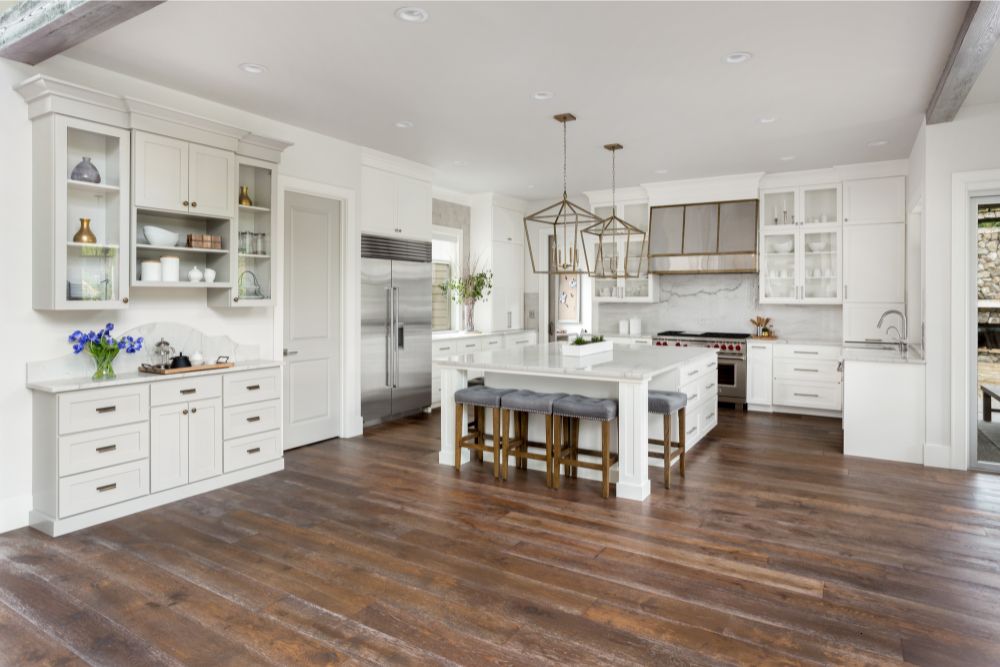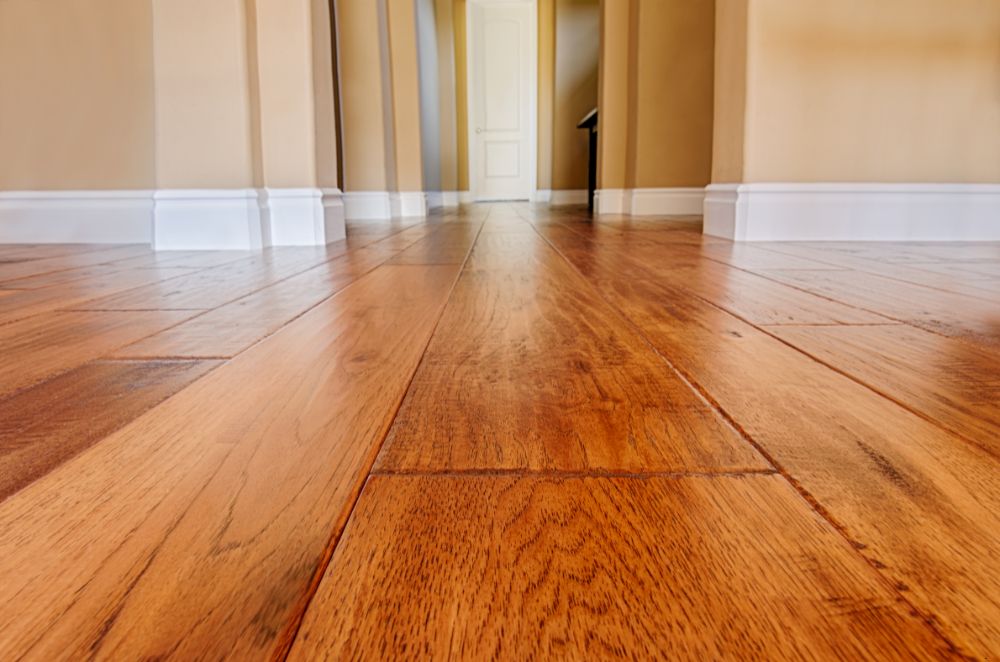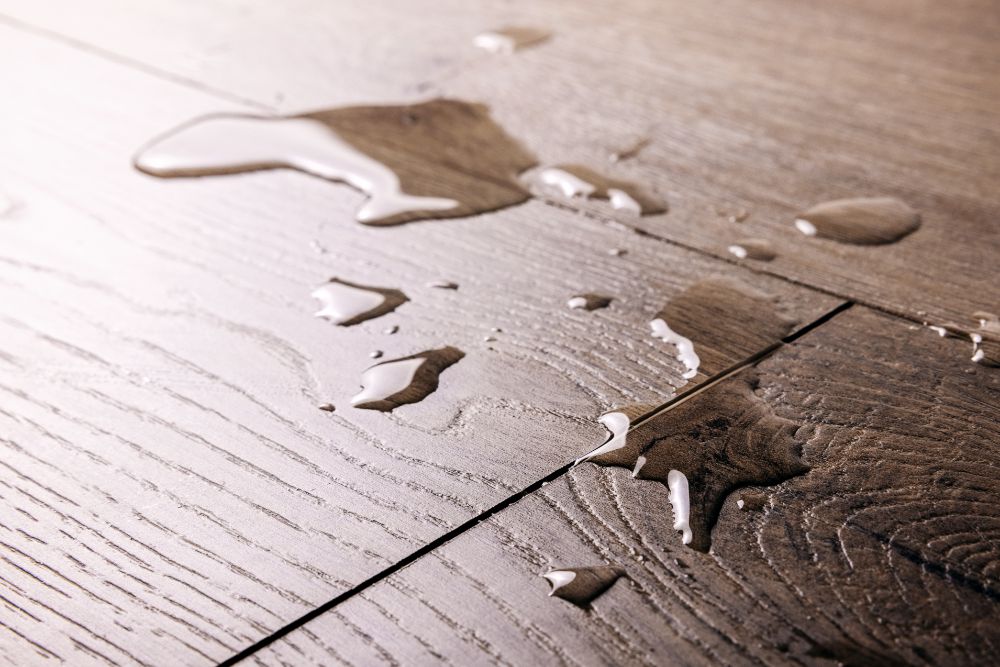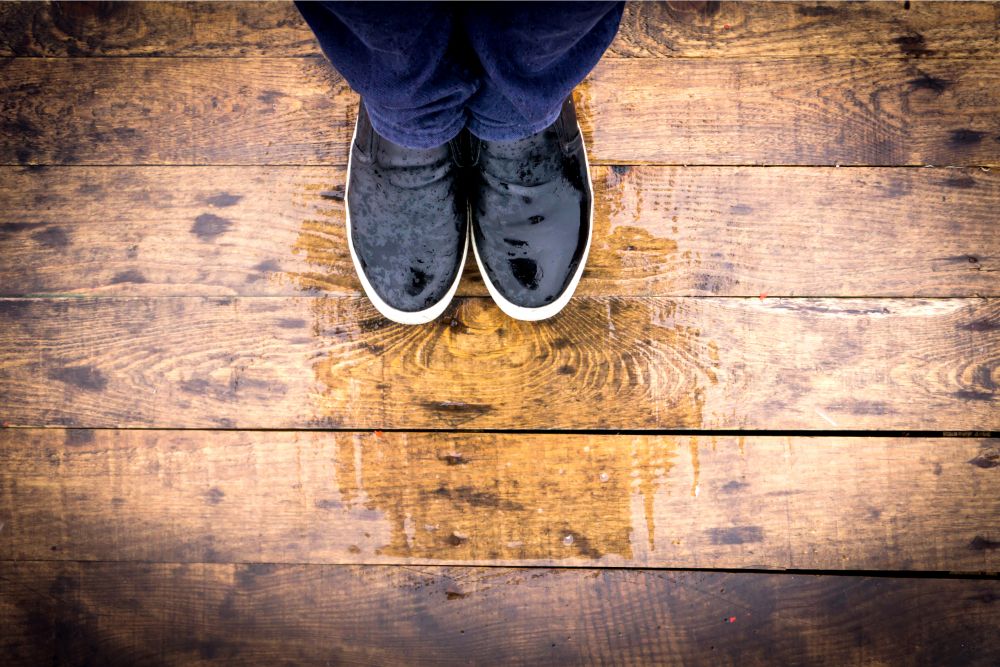Laminate vs Hardwood: Understanding Long-Term Performance

If you are considering upgrading your existing flooring to something that looks like wood, two worthy options to consider are hardwood flooring and laminate flooring. Although they have a similar appearance, they are two very different flooring options. Unsure which option would work better for you? Keep reading to find out if you should go with laminate or hardwood for your new floors.
Cost Concerns

Before diving into all the specifics of laminate vs hardwood floors, it’s worthwhile to discuss cost and budget. Regardless of the pros and cons of each type of flooring, the expense alone can make one option more appropriate for you than the other. Hardwood flooring will come at a higher price point, which may put it outside of your budget. That being said, laminate flooring has its advantages and can be purchased and installed professionally or DIY’d for much less than hardwood flooring, for a number of reasons. First, laminate flooring comes ready to be installed. It is easy to cut, using basic tools, and is easy to self-install if you have flooring installation experience. Saving on installation will help your budget!
Hardwood floors are not DIY-friendly, unless you are an actual carpenter. They are custom, in most cases, with each install being unique. Hardwoods require more advanced tools and specialized knowledge. They are either glued or nailed in place and often finished with stain or varnish after the floor is installed. The materials alone are more costly, but you also pay for the expertise of a professional. For these reasons, installing new hardwood floors will cost more.
Will it Get Wet?

There are areas that are not appropriate for the installation of hardwood. Wood does not like water; moisture can cause it to warp or swell, and it can affect the finish of hardwood. Although the core of laminates are made from organic substances (wood), there are “waterproof” laminate options. These products will be able to handle moisture better, although extended moisture can damage laminates as well. In order to have your floors looking nicer for longer, consider the potential for moisture and choose accordingly. Hardwood or laminate would be appropriate in a kitchen or foyer, but not necessarily the best choice in a bathroom.
Wear and Tear

Even the highest quality laminate has its limitations. Made of an organic core with an image layer and a wear layer, laminate is a durable, visual representation of a genuine material, often wood. They are manufactured and guaranteed to last a limited amount of time. When they are worn or damaged, they need to be replaced.
Hardwood floors, which are made from slow-growing species of trees known to be durable, such as cherry, oak, maple, hickory or walnut, are boards or planks of actual wood. Although wood has its limitations, it can be refinished if it gets worn. Hardwood floors can be sanded down and refinished and stained a different color entirely. Refinishing a quality product makes way more sense than replacing the flooring, and hardwood floors become more prized as time goes on.
Whether you are leaning more toward laminate or hardwood flooring, be sure to visit the professionals at Broadway Carpet & Flooring. They can help you review your options, go over product details and set you up with an installer who can help you upgrade your flooring, no matter what you choose.

